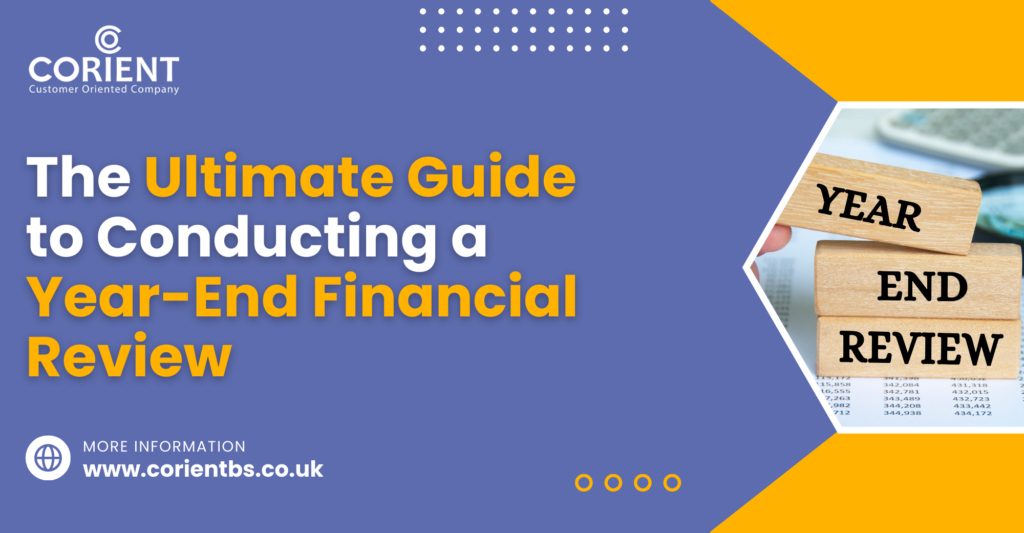
The Ultimate Guide to Conducting a Year-End Financial Review
There is no better way for accounting practices to understand their client’s financial situation than by conducting a year-end financial review. In this guide, we will explain in detail the entire process of a year-end financial review, its importance, and some tips that will help you conduct it successfully.
What is Year-End Financial Review?
Under it, you will be able to evaluate your client’s income, expenses, investments, and debit and credit position. A thorough investigation is conducted during a year-end financial review so that the exact status of your client’s business financial health is known and affirmative action can be taken.
Importance of Year-End Financial Review
Conducting a year-end financial review is important. After all, this way, you will learn about your client’s business performance for the past 12 months. Through this financial review, you can review your client’s revenue streams, profit margins, and cost structures, thus ensuring that they are on track. Additionally, through year-end financial review, you will gain vital information that can be shared with your clients, thus enabling them to make informed decisions.
Moreover, a detailed financial review can help you suggest plans and insights that help your clients make their businesses more efficient. It can highlight cost overruns and unnecessary procedure delays, thus enabling your clients to reduce costs, streamline processes, and invest resources for improvement. By doing this in-depth analysis, you will discover trends, patterns, and inconsistencies that would have either gone unnoticed or caused trouble for your client.
How to Proceed with Year-End Financial Review
Before proceeding with a year-end financial review, you are required to gather all the essential financial documents from your clients, such as bank statements, credit card statements, investment portfolios, tax documents, and any other relevant financial records. These documents must be scrutinised thoroughly so that you can determine where the money is coming from and going.
You will also have to know your client’s financial goals, whether they are interested in savings, reducing their debts, or investing in new properties or ventures. By knowing your client’s financial goals, you will be able to guide and offer valuable insights accordingly. Once the documents are ready and the financial goals are set, you can proceed with the year-end financial review.
Here are the things to do while doing a financial review.
Going through Income and Expenses
Start by checking your client’s income sources and the fluctuations that occurred throughout the year. By better understanding the fluctuations, you can help your clients plan accordingly. After that, focus on the expenses by analysing each one and then deciding which one is unnecessary and can be cut down.
Checking the Investments and Savings
If your clients have made investments or opened bank accounts, check their performance. Look at their return on investment and future projections, and based on that, advise them on further action if necessary. Make sure that these investments are based on their long-term goals.
Update the Status of Debit and Credit
Your clients will take debt to finance and expand their business, but if not planned properly, it can hinder their financial goals. Therefore, you must evaluate debts such as loans or mortgages and calculate the interest rates, penalties, and repayment terms. It is important to inform your client that these debts negatively impact their financial position.
Tips for a Successful Year-End Financial Review
We understand that conducting a year-end financial review is a hectic, time-consuming, and complex process. If you are finding it difficult to handle the financial reviews of multiple clients, then you can choose to outsource the year-end services of Corient Business and reap its benefits.
Otherwise, we have listed down certain tips which will streamline your financial review process; these tips are as follows:
- Do the review in advance so that enough time is there to do an analysis
- Prepare a list of financial documents you require from the client
- Remove unnecessary processes in the review
- Keep the review as straightforward and short as possible to maintain focus
- Avoid rushing during the review process
- Make sure that data in financial documents are accurate
- If required, take financial help from professionals such as accounting outsourcing service providers
- When a discrepancy is identified, inform your client immediately so that corrective action can be taken
What’s the Deadline for Year End Financial Review?
There is a certain time limit for the year-end financial review. In the United Kingdom, the financial year closes on 5 April. If you miss the deadline, your client will be subjected to penalties. For more information, you can visit the HMRC website.
What Would Happen If I Missed the Year-End Financial Report Deadline?
If you delay submitting the year-end financial report to the HRMC and Companies House, then there are penalties.
Below is the penalty list which will be applicable on how late the accounts reach Companies House:
| Length of period (measured from the date the accounts are due) | Penalty for a private company or LLP | Penalty for a public company |
| Not more than 1 month | £150 | £750 |
| More than 1 month but not more than 3 months | £375 | £1,500 |
| More than 3 months but not more than 6 months | £750 | £3,000 |
| More than 6 months | £1,500 | £7,500 |
Conclusion
We hope this detailed guide has benefited you. By going through this guide, you must have realised what is required, some tips on how to do it smoothly, and the deadlines and penalties. Through this guide, you can significantly add value to your client’s business by providing them with vital insights.
Suppose you are too stretched out in other important tasks. In that case, you can outsource the year-end financial review job to a professional accounting outsourcing service provider like Corient Business Solutions. Our year-end services are designed to meet your requirements. For information on this please do contact us via our contact form, our executives will get in touch with you.

